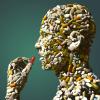I never notice anything taking supplements, include PPQ daily. I'm jealous of people who feel an effect.
1++++! I read about all these reactions to supplements people report, but I also, even though I've taken a kazillion different supplements, I've rarely noticed any effect.
Like drugs, most herbal supplements display their targeted effect at the genetic level through some degree of acting as either gene or receptor agonist or antagonist. This effect is intended to treat some underlying adverse condition or disease. If you don’t have either a beneficial or negative (side) effect...then perhaps you are perfectly healthy and have no condition to treat? Or at least not a condition that herb is capable of treating. A doctor doesn't prescribe a drug to a healthy patient as there will be no beneficial effect to be gained. If it's not broke...you can't fix it. And just like drugs…a single drug doesn’t have 100% success with every patient due to genetic differences.
Metabolism is another factor. Those with healthier livers tend to metabolize things quicker. In addition, I noticed at least when I went for a second round of Strattera (atomoxetine), my system did not adapt to 40mg as strong as it did 20mg before. It's possible that certain organs in the body can gain immunity to drugs, just like viruses in some ways, and up-regulate certain enzymes on a semi-permanent to permanent basis by being exposed to it for a prolonged time. Similarly, if a drug or an herb compound is metabolized by the same enzyme, this may affect the tolerance to those other drugs. This is called cross-tolerance.
Some drugs induce enzymes not related to its metabolism. Modafinil is one. For instance, if I was taking Modafinil for an extended period of time, it is possible that it could affect my absorption for Tianeptine, Piperine, Caffeine, Bupropion, etc. even after the period of use. This is a case where cross-tolerance would really be a transferred tolerance.
Some do grow tolerant to Modafinil, so the body does eventually figure out a way to adjust. When it takes long, sometimes the method is not enzyme regulation, but through receptor desensitization. If the stem cells catch wind, it could literally change the way the entire organ reacts.
Such occurrences of youthful, natural tolerances are generally rare. I tend to see them in those fed healthy diets as children. Thus, I think this natural tolerance has mostly to do with the liver, specifically the cytochrome P450 enzymes. The polyphenols of today's medicine makes metabolism a walk in the park compared to the polyphenols of vegetables and herbal treatments. In addition, a clean liver probably can develop faster. Health conscious parents may choose to live in a home with a well over city water, choose natural vaccination and natural remedies over doctors, and generally feed the child "bitter" tonics to help the liver, even things as simple as brocolli.
Thus, when you take supplements, rather than taking double doses or triple doses, try taking it with a digestive aid. Research the enzymes. For instance, piperine helps with CYP3A4 metabolism. Also, make sure you re-sensitize your receptors at night to avoid their down regulation and protect your nervous system from over-exposure to any one chemical. An herbal remedy for stimulants is chamomile tea and gotu kola (dried powder) taken together (the glutamatergic properties of chamomile are somewhat counteracted by the GABAergic and NMDA antagonism of Gotu Kola).
In conclusion: It also could be metabolism.




















































